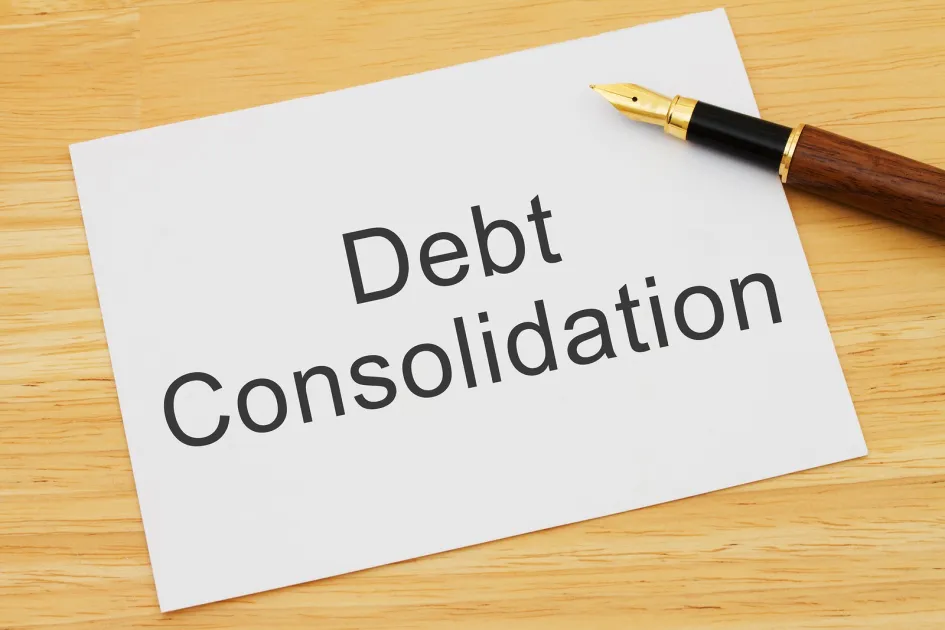Credit counseling may be included in these plans to assist with debt relief.
A debt consolidation program may provide relief if you're overwhelmed by debt, having trouble making payments, and keeping track of everything. However, before signing up, ensure you understand how these arrangements work and whether you really need to use one.
What Exactly Is a Debt Consolidation Plan?
A debt consolidation program is a service that combines multiple loans into a single monthly payment. A "program" is typically a service or a combination of services provided by a credit counseling firm or organization: You may make a single payment to the company, and they will distribute your funds to your creditors.
Important: The terminology can be perplexing. A debt consolidation loan (rather than a program) is a new loan that you use to pay off your existing debts. You probably get a better loan with better terms, making it easier to pay off debt.
Loans and programs produce similar results, even though they operate in very different ways:
- Instead of making multiple payments, you make a single payment.
- You most likely have a lower monthly payment now than you did previously.
- It's possible that paying off your debt will take longer.
- It would be best if you aimed for a lower interest rate, though you may end up paying more overall interest.
The main distinction between a debt consolidation loan and a debt consolidation program is that a loan results in your debt being transferred to a new loan. A program, as defined below, is a service that assists you in paying off your current debts. These programs are sometimes referred to as debt management plans.
A debt consolidation loan may be your best option if you have good credit and enough income. Compare the costs of a loan or a program and choose the best option.
How Does It Work?
A debt consolidation program is a service that can assist you with debt management. You create a system to eliminate debt in three to five years with the help of a nonprofit credit counseling agency or a for-profit firm.
Begin by seeking counseling.
Counseling is the first step in a debt management program. You speak with the service provider's staff to see if they can help you (together). It's an excellent opportunity to learn more about your debt and inquire about fees and how the organization operates. If you have a bad feeling about a provider, switch.
You may be required to pay fees
Despite the fact that some organizations are charitable, you may be required to pay a one-time setup fee as well as monthly fees. Before you choose an organization, compare its fees. When you're in a financial bind, every dollar counts.
Only Unsecured Loans
Only unsecured debts are eligible for debt consolidation programs. In other words, no collateral can be used to secure the loan. Home and auto loans, for example, are typically not eligible. Unsecured debts include things like credit cards, personal loans, and some student loans.
You keep track of your finances
If you use a debt management program, your loans will stay where they are now—you won't get a new loan or move the debt around. You could, however, make a single monthly payment to your service provider, and the funds will be distributed to your various creditors. During the setup process and as the program progresses, your service provider will communicate with your creditors.
There will be no new debt
Taking on more debt is not an option because the goal is to get out of debt. You may need to cancel most of your credit cards and agree not to take out new loans while you pay off your existing ones.
Payments that are lower?
In an ideal world, you'd pay less on your loans each month, but more of that money would go toward debt repayment. To make this work, your interest rates may be reduced, resulting in less money being spent on interest charges. It's possible that your penalty fees will be reduced. Does it seem too good to be true? Of course, there is a cost (not to mention the fees you pay to your service provider).
The Impact on Credit
Your credit scores should not be affected by enrolling in a debt management program. The fact that you're in a program, however, may show up on your credit reports. Furthermore, the steps you take as part of the program can have a positive or negative impact on your credit.
Selecting a Program
Many businesses and organizations are eager to assist you in debt management. How do you know which is the best option?
Inquire around, read reviews, and look into different service providers. Begin by looking for organizations with a good reputation. The nonprofit National Foundation for Credit Counseling (NFCC) certifies credit counselors and establishes specific requirements for member organizations.
Tip: While NFCC is a good place to start, there may also be other good options.
Remember that you may not even require a debt management program: many of the same tasks can be accomplished on your own. You'll spend time and energy rather than money instead of paying a fee—but you might have more time and energy than money right now. Check with your creditors to see if there is any way to get some help. If you're having trouble or want to enlist the help of a professional, contacting a credit counselor is the next step.
A debt relief program may be able to assist you if your situation and ability to pay off a number of credit cards are more complicated. Debt settlement is a last resort because it requires you to stop making payments and work with a company that holds your money in escrow while you negotiate with your creditors to reach a settlement, which can take up to four years. Withholding creditors' payments can significantly negatively impact your credit score.


